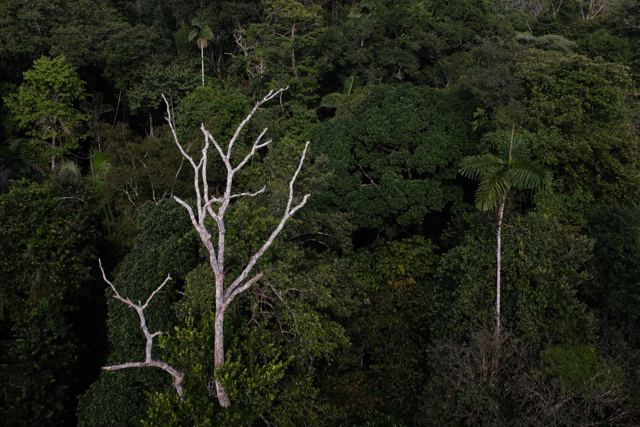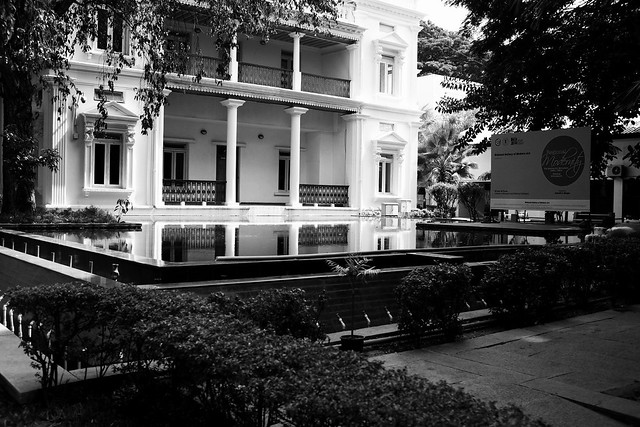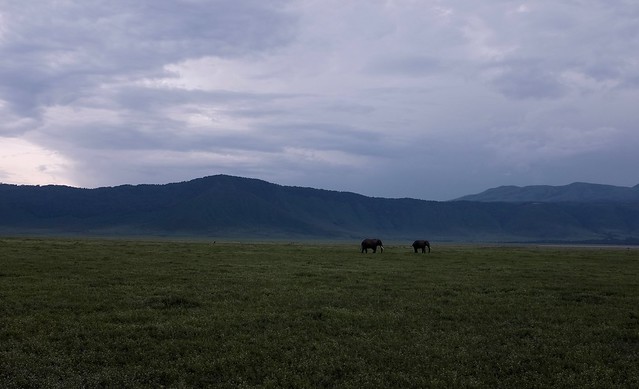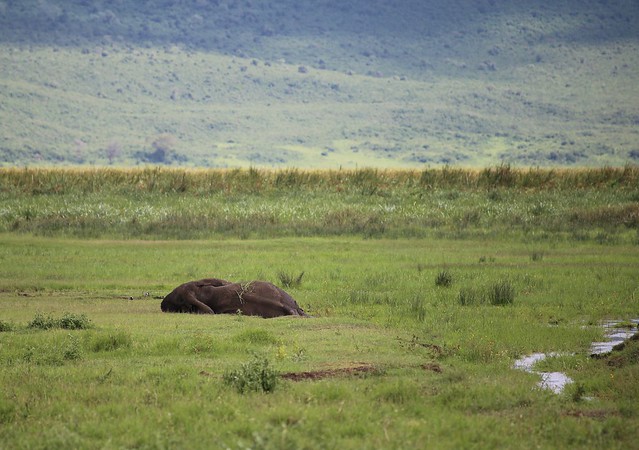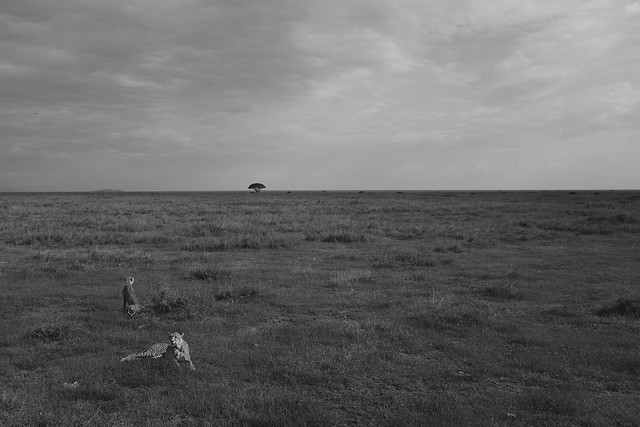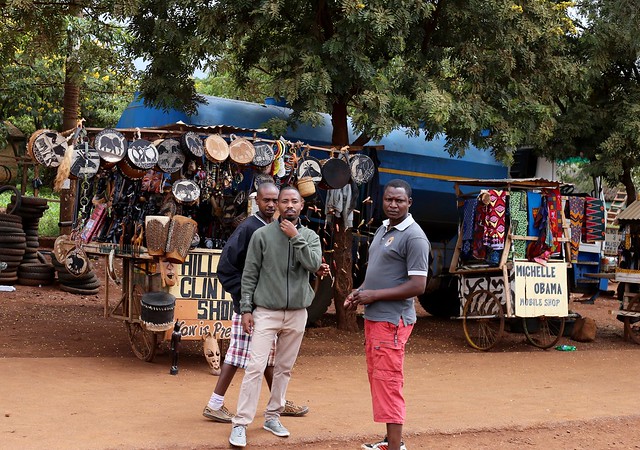
On our drive to Serengeti and back, we passed small towns with a thriving roadside economy bound to this passing traffic. The bigger and more permanent shops were set a little away from the street: Mobile ‘Wakalas’ (agencies), bike repair shops, car washing centers, groceries, medical stores, and others whose purpose you could only guess at: Lelo shop, Joh Mix shop, Mama Soni shop, Dogo shop. Closer to the road we saw motorcycle taxis, autorickshaws (called “Bajaj” by the locals), and pushcart vendors selling all manner of things from bananas, corn, and cassavas, to handicrafts, shoes, and clothing. Hilary Clinton Shop and Michelle Obama Mobile Shop were labelled to attract the attention of tourists who fall for such tricks, and it worked on us to a point. We slowed down to take a photo.
At a fuel station nearby, hawkers peddling handicrafts drifted towards our jeep.
“Hello mister, are you from India?”
The boy — he was fourteen or fifteen — had a backpack strapped to his stomach and a smaller bag on his shoulders with wooden figurines peeping out. His left hand was obscured beneath a thicket of bracelets.
“Yes we are!”
“My name is Krishna.” He held out his hand towards my window.
“Then I’m Rama,” I said, shaking his hand, and before I could withdraw it he had placed an elephant on my palm.
“It is made of ebony — really good.”
“This is too light,” I said. “It can’t be ebony.”
“It is ebony! Anyway, try this one.”
The giraffe was no heavier than the elephant.
“No thank you.”
“Try these!” he persisted, untangling a few bracelets. A man wearing dark glasses and carrying similar odds and ends arrived at my window. On instinct I began to close it.
“No close mister,” the boy said. “Friendship is more important than money. You don’t buy, no problem.”
I left the window open and indulged in my curiosity, asking about this or that object. Krishna continued to maintain it was all ebony. When we were done fuelling, I thanked him and shook his hand.
“Asante!” I said.
“Karibu!” came the reply.


